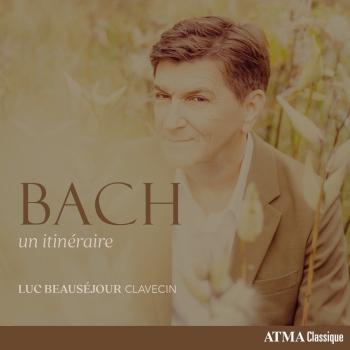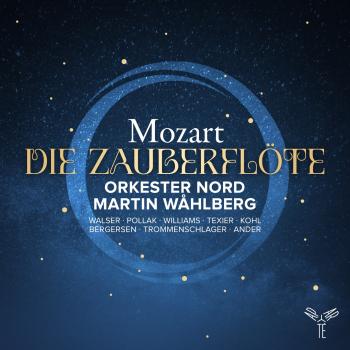
Berlioz: La Damnation De Faust (The Damnation of Faust) Marie-Ange Todorovitch
Album info
Album-Release:
2006
HRA-Release:
30.04.2015
Label: Naxos
Genre: Classical
Subgenre: Vocal
Artist: Marie-Ange Todorovitch, Michael Myers, Alain Vernhes, Rene Schirrer, Slovak Philharmonic Choir and Radio Symphony Orchestra & Richard Bonynge, Lille National Orchestra & Jean-Claude Casadesus
Composer: Hector Berlioz (1803-1869)
Album including Album cover Booklet (PDF)
- Hector Berlioz (1803-1869): La Damnation De Faust - Part I
- 1 Scene 1: Le vieil hiver a fait place (Faust) 06:01
- 2 Scene 2: Les bergers laissent leur troupeaux, Peasants’ Dance (Chorus, Faust) 03:31
- 3 Scene 3: Mais d’un eclat guerrier (Faust) 00:51
- 4 Scene 3: Hungarian March, Rakoczy March 04:48
- La Damnation De Faust - Part II
- 5 Scene 4: Sans regrets j’ai quitte les riantes campagnes (Faust) 04:49
- 6 Scene 4: Easter Hymn: Christ vient de ressusciter! (Chorus, Faust) 05:34
- 7 Scene 4: Helas! Doux chants du ciel (Faust) 01:05
- 8 Scene 5: O pure emotion! (Mephistopheles, Faust) 02:17
- 9 Scene 6: A boire encor! (Chorus, Mephistopheles) 00:28
- 10 Scene 6: Oh! Qu’il fait bon! (Chorus, Brander) 02:24
- 11 Scene 6: Certain rat, dans une cuisine, Brander’s Song (Brander, Chorus) 02:11
- 12 Scene 6: Amen, amen, amen!, Fugue on Brander’s Song (Brander, Chorus) 01:20
- 13 Scene 6: Vrai dieu! Messieurs (Mephistopheles, Chorus) 01:13
- 14 Scene 6: Une puce gentille, Mephistopheles Song (Mephistopheles, Chorus) 01:36
- 15 Scene 6: Assez! Fuyons ces lieux (Faust) 02:21
- 16 Scene 7: Voici des roses (Mephistopheles) 02:31
- 17 Scene 7: Dors! Dors! Heureux Faust!, Faust’s Dream (Chorus of Gnomes and Sylphs, Mephistopheles, Faust) 06:47
- 18 Scene 7: Dance of the Sylphs 02:24
- 19 Scene 7: Margarita! Qu’ai-je vu? (Faust, Mephistopheles) 01:11
- 20 Scene 8: Finale: Villes entourees (Chorus of Soldiers and Students) 05:02
- La Damnation De Faust - Part III
- 21 Scene 9: Drums and Trumpets Play the Retreat 01:12
- 22 Scene 9: Merci, doux crepuscule!, Faust’s Aria (Faust) 04:30
- 23 Scene 10: Je l’entends! (Mephistopheles) 00:57
- 24 Scene 11: Que l’air est etouffant! (Marguerite) 02:45
- 25 Scene 11: Autrefois un roi de Thule, The King of Thule (Marguerite) 04:22
- 26 Scene 12: Evocation: Esprits des flammes inconstantes (Mephistopheles) 02:03
- 27 Scene 12: Minuet of the Wills-o’-the-Wisp 05:44
- 28 Scene 12: Maintenant, Chantons a cette belle (Mephistopheles) 00:22
- 29 Scene 12: Devant la maison, Serenade of Mephistopheles, (Mephistopheles, Chorus of Wills-o’-the-Wisp) 02:02
- 30 Scene 13: Duet: Grand Dieu! Que vois-je! (Marguerite, Faust) 04:48
- 31 Scene 14: Trio and Chorus: Allons! Il est trop tard! (Mephistopheles, Marguerite, Faust) 02:16
- 32 Scene 14: Hola, mere Oppenheim (Chorus of Neighbours in the Street) 02:49
- La Damnation De Faust - Part IV
- 33 Scene 15: Romance: D’amour l’ardente flamme (Marguerite) 07:34
- 34 Scene 15: Au son des trompettes (Chorus of Soldiers, Marguerite) 02:13
- 35 Scene 16: Nature immense, impenetrable, Invocation to Nature (Faust) 04:13
- 36 Scene 17: Recitative and Chase: A la voute azuree (Mephistopheles, Faust) 03:33
- 37 Scene 18: Dans mon coeur retentit sa voix, The Ride to the Abyss (Faust) 03:39
- 38 Scene 19: Pandemonium: Irimiru Karabrao! (Chorus of the Damned and the Demons) 04:04
- 39 Scene 19: Alors, l’Enfer se tut, Epilogue on Earth (Chorus) 01:08
- 40 Scene 20: Laus! Laus! Hosanna! (Chorus) 01:04
- 41 Scene 20: Remonte au ciel, Margarita’s Glorification (Chorus) 04:04
Info for Berlioz: La Damnation De Faust (The Damnation of Faust)
When Hector Berlioz was sent by his physician father to study medicine in Paris, he instead entered the Conservatoire to study composition. Goethe’s Faust, in a French translation by Gérard de Nerval, formed the basis of the Damnation of Faust, which Berlioz termed a Légende dramatique. The plot centres on Faust’s bargain with Méphistophélès, the seduction of Marguerite, her imprisonment for matricide and her salvation, while Faust himself is dragged down to Hell, in damnation. These events are vividly captured with all Berlioz’s skill of dramatic orchestral writing. The opera includes the popular Rákóczy March and two frequently-performed dance movements: Minuet of the Will-o’-the-Wisps and Dance of the Sylphs.
„Such is the strength of this recording, you’ll believe you’re in the thick of the action. Berlioz’s La Damnation de Faust calls for as much spectacle as Wagner’s Ring: there’s a magical ‘Ballet of Sylphs’, an extraordinary ‘Invocation to Nature’, a fiery ‘Ride into the Abyss’ and the entire Hungarian army has to march across a plain. It’s foiled many an opera company to stage, but this recording offers the next best thing: playing and singing of such vivid conviction and colour that you’ll almost believe you can see it. Casadesus gets right under the skin of Berlioz’s incredible orchestration, Myers (Faust) has a fine tenor voice and Vernhes is thrillingly malevolent as Mephistopheles…a highly recommended recording.“ (Classic FM)
„This brilliant, briskly paced Damnation serves up the story almost offhand, with reliable panache spiriting up the big moments-Hungarian March, Easter Hymn, Soldiers' Chorus, 'Ride to the Abyss,' and so on-with plenty of flash, and solos with more than adequate command, though none of it strikes very deeply. Beset by occasional vibrato, Myers's light tenor projects a tremulous Faust. Todorovitch's mezzo flickers from darkly honeyed to piercingly bright with the air of a proneither demure innocence nor much involvement is at play. Alain Vernhes's metallically edged baritone teeters sardonically from suave to sinister-an ideal combination-without managing a memorable Mephistopheles in the manner of, say, Singher, Bastin, or Van Dam. Sound places the vocalists in the porches of your ears, though the orchestra's not far behind, even in intimate moments, while climaxes come across with a cataclysmic wallop. A few bars from Monteux, Munch, Sir Colin Davis (early and late), Kent Nagano, or Myung-Whun Chung, for starters-or singing actors such as Andre Turp, Keith Lewis, John Shirley-Quirk, Regine Crespin, or Anne Sofie von Otter, to name but a few-will serve to demonstrate what dramatic and expressive riches lie beneath Berlioz's spectacular sonic surfaces. But this is a sonic spectacular and the price is inviting.“ (Adrian Corleonis, Fanfare)
Marie-Ange Todorovitch, mezzo-soprano
Michael Myers, tenor
Alain Vernhes, baritone
René Schirrer, bass
Slovak Philharmonic Choir
Jan Rozehnal, Chorus master
Orchestre National de Lille/Région Nord-Pas de Calais
Jean-Claude Casadesus, conductor
No biography found.
Booklet for Berlioz: La Damnation De Faust (The Damnation of Faust)












